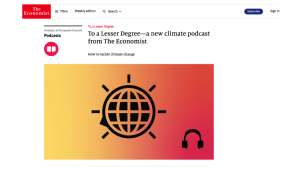 |
October 29, 2021 Volume 27, Number 43 |
General Interest |
Theme: Folklore |
Revisited |
In the News |
General InterestBack to Top | |
 |
|
 |
|
 |
|
 |
|
 |
|
Theme: FolkloreBack to Top | |
 |
|
 |
|
 |
|
 |
|
 |
|
RevisitedBack to Top | |
 |
|
In the NewsBack to Top | |
World Health Organization Recommends Distribution of Malaria Vaccine in Sub-Saharan Africa | |
|
World's first malaria vaccine given go-ahead for mass immunisation of African children https://www.sciencefocus.com/news/worlds-first-malaria-vaccine-given-go-ahead-for-mass-immunisation-of-african-children/ Inside the 40-year fight to rid the world of malaria https://www.wbur.org/onpoint/2021/10/18/who-vaccine-fight-to-rid-the-world-of-malaria West African Scientists Are Leading the Science Behind a Malaria Vaccine https://www.smithsonianmag.com/innovation/west-african-scientists-are-leading-science-behind-malaria-vaccine-180978134/ Malaria https://www.who.int/news-room/fact-sheets/detail/malaria RTS,S/AS01 vaccine (Mosquirix): an overview https://www.ncbi.nlm.nih.gov/pmc/articles/PMC7227679/ Scientists hail historic malaria vaccine approval - but point to challenges ahead https://www.nature.com/articles/d41586-021-02755-5 Malaria - a life-threatening disease caused by parasites transmitted through mosquito bites - has plagued humankind for millenia. As many as 300 million people may have succumbed to the disease in the last century alone, and it continues to kill nearly half a million people worldwide each year, about 67% of them children. Initiatives to counter malaria have focused on insecticide spraying and mosquito nets to prevent transmission. Now, after decades of efforts, there is a vaccine to add to the anti-malaria arsenal. Because malaria is caused by complex Plasmodium parasites rather than a virus or bacteria, it has been challenging to develop an effective vaccine. However, after the efficacy of the RTS,S malaria vaccine was demonstrated in a pilot project in three countries in Sub-Saharan Africa, the World Health Organization (WHO) is recommending widespread distribution to children living in the region. Although the vaccine is only effective at preventing serious malaria in 30% of cases, even this modest effect could drastically reduce the devastating and disruptive impacts of malaria in Africa and beyond. In the first link from the BBC Science Focus Magazine, readers can learn about the anti-malaria vaccine recommendation, which the WHO hails as a "historic moment for science, child health, and malaria control." With the second link, listeners can hear a segment from WBUR's program On Point, which highlights the impacts of malaria on children and the decades-long effort to eradicate the disease. The article from Smithsonian Magazine in the third link explores how a network of scientists from the West African country of Mali have led the charge to develop a malaria vaccine. The fourth link is to a malaria fact sheet from the WHO, which includes information on the symptoms, disease burden, transmission, and prevention of malaria. The fifth link, an article from the journal Human Vaccines & Immunotherapeutics, provides a detailed technical overview of malaria and how the RTS,S vaccine works against the Plasmodium falciparum parasite. Finally, in the sixth link, readers will find an article from Nature that details the challenges that remain in anti-malaria efforts, including the vaccine's low efficacy and complex dosing procedures, funding hurdles to widespread administration, and possible unforeseen consequences of the vaccine's success. [MJZ] | |





